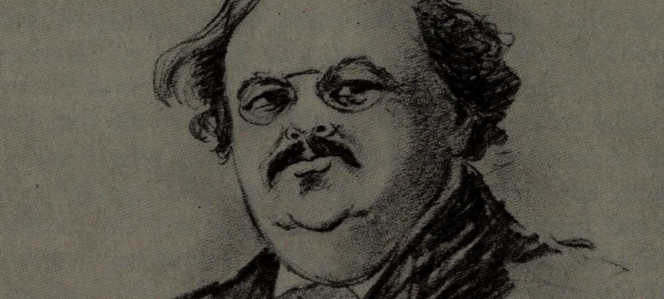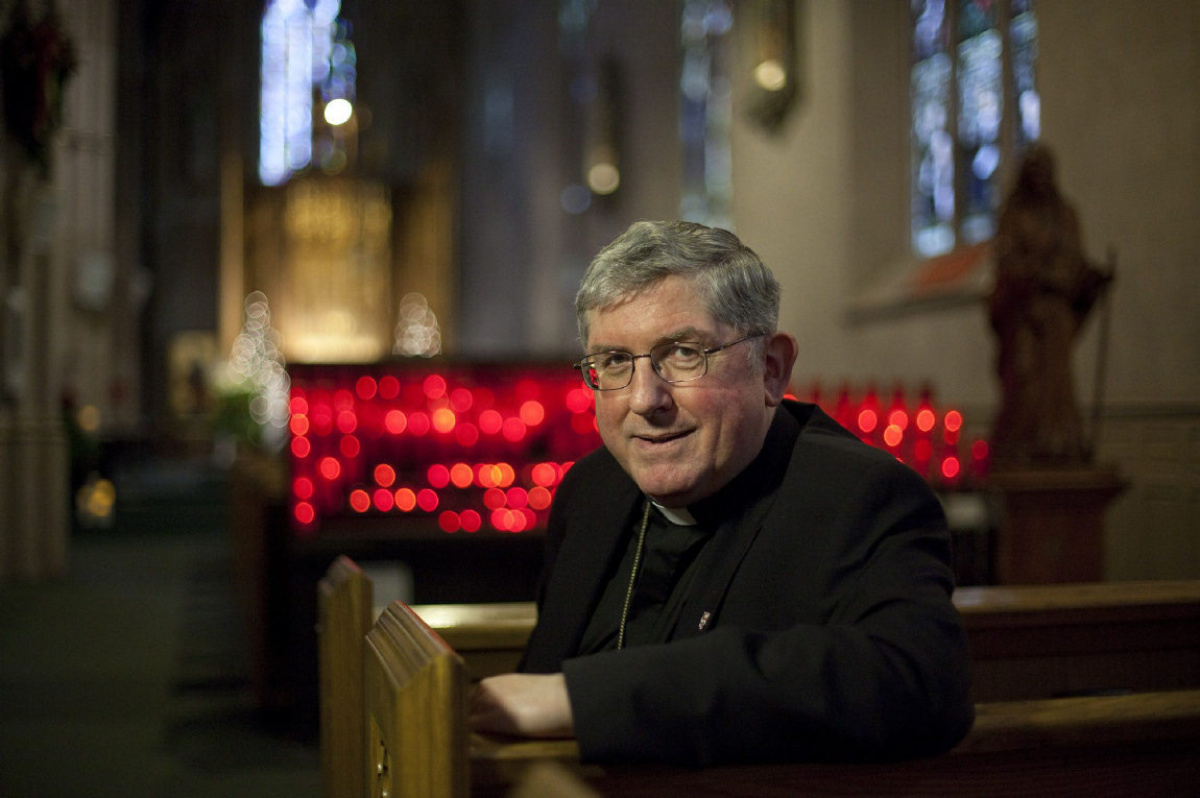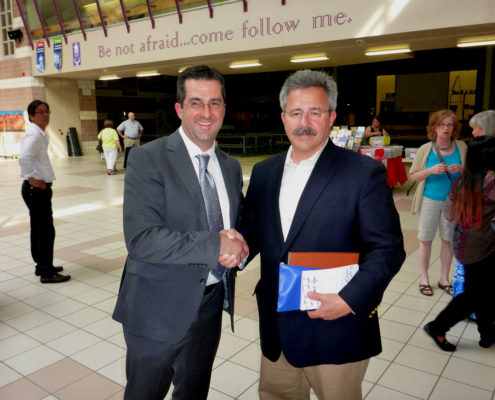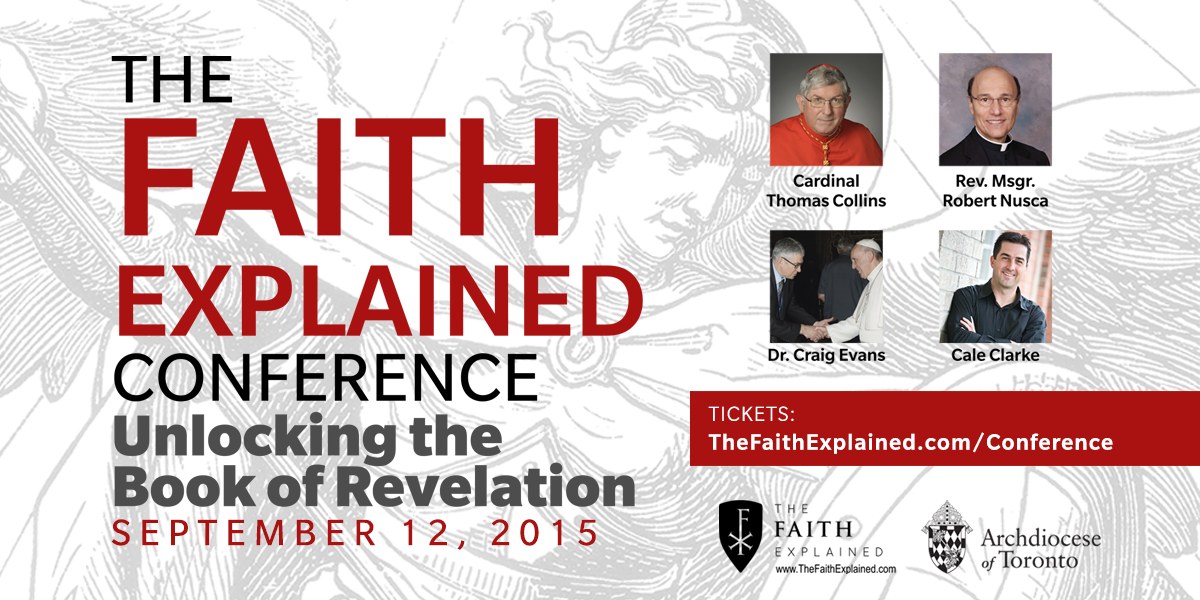Fun post by Brandon Vogt over at the Word on Fire blog. Brandon is, along with Dale Ahlquist, a driving force behind the 38th Annual Chesterton Conference, and…
(C)onference organizers were surprised to see a new registration come through for one “Thomas Collins” living in Toronto, Canada. The name sounded familiar. But, wait, it couldn’t be, right? It couldn’t be Cardinal Thomas Collins, the Archbishop of Toronto, could it?
Well, organizers reached out through the email provided and sure enough, it was the Cardinal himself! He said he had long wanted to attend one of the annual Chesterton conferences, but until now had been blocked by other commitments. Yet with a free weekend in early August, he decided to sign up! So he went to the website and registered.
Brandon asked Cardinal Collins for an interview about Chesterton’s influence on his life and ministry. Some good stuff here:
VOGT: Among Chesterton’s many ideas, which have most shaped your life?
CARDINAL COLLINS: Chesterton is just so sensible, and I have been really influenced by his perceptive revelation of the shallowness of the modern world, so full of illusion.
What he wrote about government and big business destroying the family is as relevant today as when he wrote it.
I have valued greatly his sense of wonder at the world around us, and the beauty of things, simple tangible things.
I appreciate his idea that we need to be attentive to what is local.
In terms of how to communicate, I love the way in which he is both clear and charitable, and how he communicates serious ideas in a humorous way. But clarity and charity are fundamental.
And:
VOGT: Has Chesterton shaped your priesthood or episcopacy in specific ways?
CARDINAL COLLINS: The Father Brown stories certainly have influenced my vision of the priesthood—and Chesterton wasn’t a Catholic when he wrote some of the best of those stories. It’s interesting (and I think Chesterton would have appreciated the irony, if not paradox) that some of the best literature on the Catholic priesthood is by non-Catholics, such as Willa Cather and Taylor Caldwell.
As a priest and especially a bishop, I have marveled at how he communicated the faith boldly and effectively to the secular world, and always with charity and wit. In some ways he is like an episcopal hero of mine, St. Francis de Sales.
Chesterton is also very plain and direct, and that is how bishops must be: no bafflegab, no obscure subtleties. He is profound, but he doesn’t have a lot of layers, and that is good. What you see is what you get.
Readers of these pages are well aware of our fondness for Cardinal Collins, who has been a huge supporter of The Faith Explained Institute, and speaks at our conferences whenever possible. I just love the fact he was going to take in a Chesterton conference (and probably looking forward to going simply as an attendee). Knowing how generous he is with his time and talents, I’m not at all surprised that once word got out, he agreed to speak and celebrate Mass while there.




 Cardinal Thomas Collins, Archbishop of Toronto, penned a powerful letter today to Canadian Prime Minister Justin Trudeau regarding the Trudeau government’s regrettable recent decision to donate $650 million to international organizations that promote abortion and contraception.
Cardinal Thomas Collins, Archbishop of Toronto, penned a powerful letter today to Canadian Prime Minister Justin Trudeau regarding the Trudeau government’s regrettable recent decision to donate $650 million to international organizations that promote abortion and contraception. Saint Michael’s Cathedral was rededicated last night – September 29, the feast of Saint Michael the Archangel (patron saint of the Archdiocese). The word cathedral comes from the Greek word kathedra, which means “seat or elevated throne”. In the Gospel of Matthew, Jesus uses this word when he says that the Scribes and Pharisees sit on Moses’ “seat” (kathedra). The kathedra symbolized teaching authority. It was a common practice for Jewish rabbis to sit down while teaching, a practice which Jesus himself took up numerous times in the Gospels.
Saint Michael’s Cathedral was rededicated last night – September 29, the feast of Saint Michael the Archangel (patron saint of the Archdiocese). The word cathedral comes from the Greek word kathedra, which means “seat or elevated throne”. In the Gospel of Matthew, Jesus uses this word when he says that the Scribes and Pharisees sit on Moses’ “seat” (kathedra). The kathedra symbolized teaching authority. It was a common practice for Jewish rabbis to sit down while teaching, a practice which Jesus himself took up numerous times in the Gospels. The Faith Explained Conference: Search and Rescue conference this summer was a great success! Hundreds gathered at Saint Joseph’s High School in Mississauga (in the greater Toronto area) to hear Patrick Madrid, Cardinal Thomas Collins, and yours truly talk about how to bring friends and family who have left the Catholic Church back home. Patrick’s the distinguished looking, mustachioed guy on the right (I call him the Catholic Church’s answer to Tom Selleck). I’d like to thank everyone who attended for being there, along with my amazing Faith Explained team, and all of our sponsors who made this event possible. I’d especially like to thank Cardinal Collins, EWTN, Verbum Catholic Bible Software, The Daughters of St Paul, and the Fulton J. Sheen Society for their support.
The Faith Explained Conference: Search and Rescue conference this summer was a great success! Hundreds gathered at Saint Joseph’s High School in Mississauga (in the greater Toronto area) to hear Patrick Madrid, Cardinal Thomas Collins, and yours truly talk about how to bring friends and family who have left the Catholic Church back home. Patrick’s the distinguished looking, mustachioed guy on the right (I call him the Catholic Church’s answer to Tom Selleck). I’d like to thank everyone who attended for being there, along with my amazing Faith Explained team, and all of our sponsors who made this event possible. I’d especially like to thank Cardinal Collins, EWTN, Verbum Catholic Bible Software, The Daughters of St Paul, and the Fulton J. Sheen Society for their support. Tickets are now available for The Faith Explained Conference: Unlocking the Book of Revelation on Saturday, September 12. You can get them at
Tickets are now available for The Faith Explained Conference: Unlocking the Book of Revelation on Saturday, September 12. You can get them at 
 Folks, there is still a bit of time left to order tickets for The Faith Explained Conference online at this link:
Folks, there is still a bit of time left to order tickets for The Faith Explained Conference online at this link:  You’ve no doubt heard about The Faith Explained Conference this Saturday, Sept. 27, featuring Cardinal Thomas Collins, Dr Craig Evans, and me. If you don’t have tickets yet, grab them at this link:
You’ve no doubt heard about The Faith Explained Conference this Saturday, Sept. 27, featuring Cardinal Thomas Collins, Dr Craig Evans, and me. If you don’t have tickets yet, grab them at this link: 